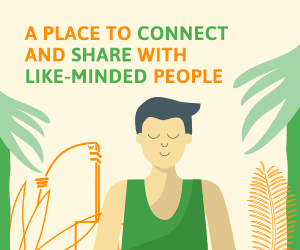It's all too easy to snap at our friends and family when they upset us, but by practising nonviolent communication (NVC), Arlo Laibowitz argues that we can make our communication friendlier and ourselves happier.
"Hi! Sorry, I’m late." – "You are always late and unreliable!" – "Oh really?! That’s because you want to meet at impossible hours!" – "Why do I even try to be on time?! You egoist!!" – "I hate you!" – "I hate you more!”
Personal relationships contribute to our happiness. But sometimes things can go wrong: we say and do things that create conflict between our loved ones and us.
Well, there's a way to avoid or resolve conflicts, developed by psychologist Marshall Rosenberg. It's called nonviolent communication or NVC. How does this method work, and how does it help us to be happier in our relationships? Watch the video on nonviolent communication:
"I care."
"I'm concerned."
"I understand."
“I sympathise.”
Nonviolent communication and compassion
Nonviolent communication is based on the idea that we all have the capacity for compassion, and that we only use violence or harmful behaviour when we don’t have a more effective way to meet our needs. Nonviolent communication tries to find a way for everyone to get what matters, without the use of coercive or manipulative language.
"I want to be loved."
"I want to show I feel with you."
"I want to be seen.“
“I want to be happy"
Three aspects of communication
Nonviolent communication focuses on three aspects of communication:
- self-empathy (awareness of your own experience)
- empathy (understanding of the other with your heart)
- honest self-expression (expression that inspires compassion in others)
Practitioners of NVC focus in their communication on four aspects:
- Observation What are you seeing, hearing or touching, without evaluating or judging?
- Feelings What are your emotions, without thoughts or stories added?
- Needs What do you desire, without thinking of the strategy to get there?
- Requests What specific action would you like to ask, without demanding it?
NVC: constructing communication
The components of nonviolent communication work together. A typical nonviolent communication way of expressing something would be:
- When you do A [observation] ...
- … I feel B [feelings] ...
- … because I want C [needs] ...
- … I would appreciate it if you would be willing to do D [request].
For example, “When you are late, I feel neglected, because I want to use my time well. I would appreciate it if you could let me know when you’re running late.”
Nonviolent communication is useful for connecting with others and living in a way that is conscious, present, and in tune. And that, in the end, makes up all happier! ●
happiness.com | The fine art of being: learn, practise, share
Are you a happiness.com member? Sign up for free now to enjoy:
■ our happiness magazine with practical life tips
■ share and support others in our happiness forum
■ self-develop with free online classes in our happiness Academy
Written by Arlo Laibowitz
 Arlo is a filmmaker, artist, lecturer, and intermittent practitioner of metta meditation and morning yoga. When not dreaming about impossible projects and making them happen in the most impractical ways possible, he journals, listens to jazz, or cuddles with his better half.
Arlo is a filmmaker, artist, lecturer, and intermittent practitioner of metta meditation and morning yoga. When not dreaming about impossible projects and making them happen in the most impractical ways possible, he journals, listens to jazz, or cuddles with his better half.


Join the conversation
You are posting as a guest. If you have an account, sign in now to post with your account.
There are no comments to display.